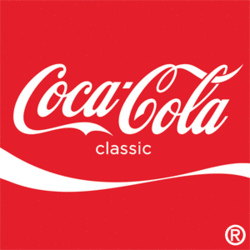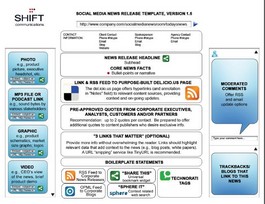May 2008 Archives

 A brand is a promise. It's what your customers think of when they think of your company. It's shorthand for a set of values and assumptions. It's eternal. And it's a moving target.
A brand is a promise. It's what your customers think of when they think of your company. It's shorthand for a set of values and assumptions. It's eternal. And it's a moving target.
 While I'm living my wonderful but fairly ordinary life, millions of people post stuff to the web. Most of it is not worth looking at, but a tiny bit rises to the top, either by brilliance, outrageousness, or chance.
While I'm living my wonderful but fairly ordinary life, millions of people post stuff to the web. Most of it is not worth looking at, but a tiny bit rises to the top, either by brilliance, outrageousness, or chance.  The other day the Wichita State student public relations society hosted a networking event at the Greteman Group. I spent most of my time there meeting students and critiquing resumes. I met some impressive young adults and they brought with them very good printed resumes. However, only one student had purchased and set up a web domain to show off their work.
The other day the Wichita State student public relations society hosted a networking event at the Greteman Group. I spent most of my time there meeting students and critiquing resumes. I met some impressive young adults and they brought with them very good printed resumes. However, only one student had purchased and set up a web domain to show off their work.
I'm interested in blogging and social media primarily as tools for my work, which is in public relations. These tools are
potentially great ways to develop targeted relationships to help achieve strategic goals. As a public relations professional, I
belong to the Public Relations Society of America (PRSA). This organization works to separate what I call "ethical PR" from
all the two-bit hustlers out there who will do anything to get their messages to their destinations. I am also accredited in public relations (APR), which distinguishes public relations practitioners much as the CPA distinguishes some accountants. It's a good start, but will only help when there's a critical mass of professionals to create a norm of good practice in the field.
PRSA has a code of ethics which all bloggers should at least consider. In fact, most of the sins of the blogging world would go away if bloggers would follow this code.
Here's what happens when people who are not trained in PR teach students to use social media tools. In short, this class project used deception and failed to disclose its relationship with its client, Coach, maker of designer purses and other leather goods. These people - the teachers AND the students - should have known better.
 The Public Relations Society of America (PRSA) Southwest Region held an excellent meeting in Little Rock last month. One of the speakers was alpha blogger Chris Brogan, who here offers links for beginning bloggers. Like me.
The Public Relations Society of America (PRSA) Southwest Region held an excellent meeting in Little Rock last month. One of the speakers was alpha blogger Chris Brogan, who here offers links for beginning bloggers. Like me.